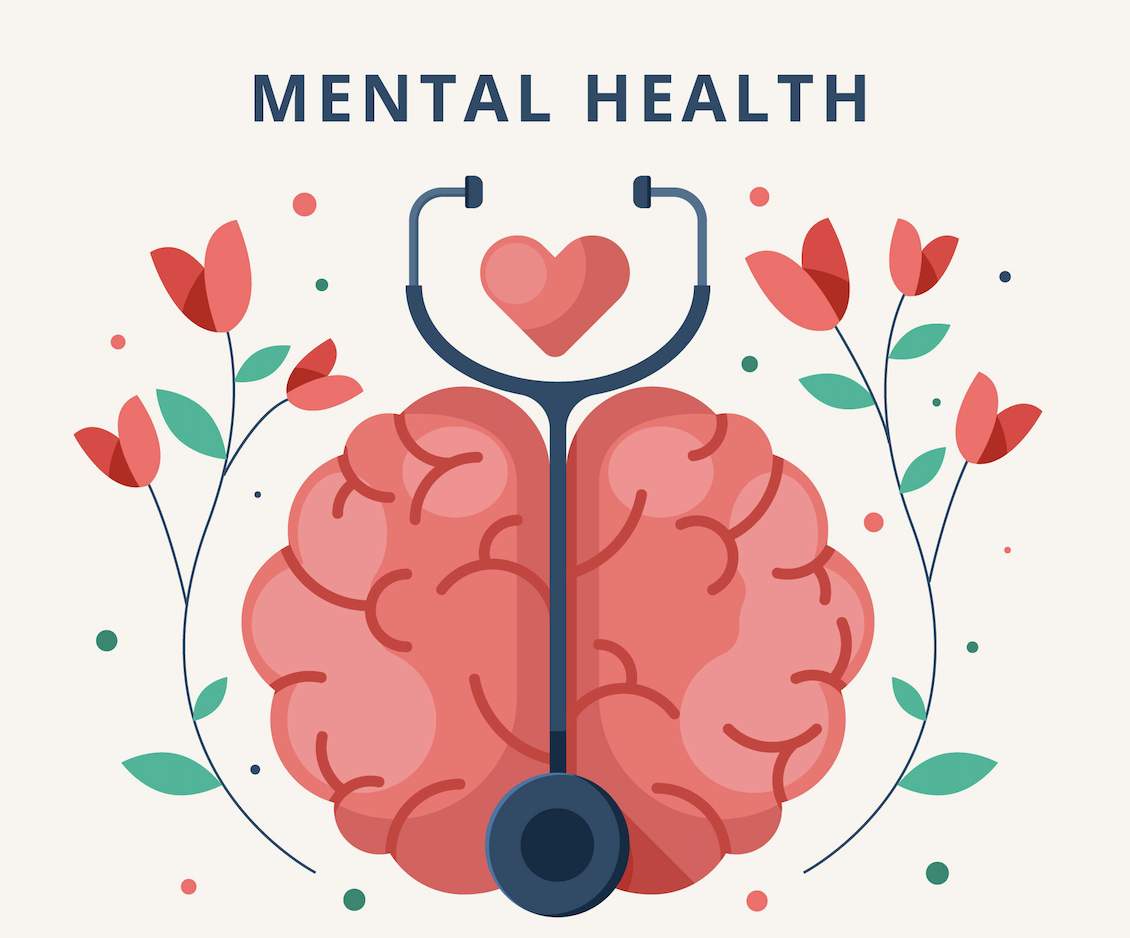Embracing Emotional Wellness: Strategies for a Healthier Mind and Heart

Strategies for a Healthier Mind and Heart
🌈 Introduction: In the fast-paced and demanding world we live in, prioritizing emotional wellness is crucial for leading a fulfilling and balanced life. Nurturing our mental and emotional health not only enhances our overall well-being but also equips us with the resilience needed to navigate life’s challenges. Let’s explore some effective strategies to cultivate emotional wellness and create a more harmonious internal landscape.
1️⃣ Mindfulness and Meditation: Embrace the power of mindfulness and meditation to center your mind and connect with the present moment. These practices are invaluable for reducing stress, promoting self-awareness, and cultivating a sense of inner peace. Consider incorporating short meditation sessions into your daily routine to experience the transformative benefits.
2️⃣ Expressive Writing: Give voice to your thoughts and emotions through expressive writing. Journaling allows you to explore and process your feelings, gaining insights into your inner world. This practice can be a therapeutic outlet, helping to release pent-up emotions and fostering a deeper understanding of oneself.
3️⃣ Positive Affirmations: Challenge negative self-talk by incorporating positive affirmations into your daily routine. Affirmations can shift your mindset, promote self-love, and build confidence. Choose affirmations that resonate with you and repeat them regularly to reinforce a positive and empowering internal dialogue.
4️⃣ Healthy Lifestyle Choices: Prioritize your physical health as it directly influences your emotional well-being. Regular exercise, balanced nutrition, and sufficient sleep contribute to overall wellness. Physical activity, in particular, releases endorphins, the body’s natural mood lifters, promoting a positive and energized state of mind.
5️⃣ Establishing Boundaries: Learn to set and maintain healthy boundaries in your personal and professional life. Recognize when to say no and prioritize your needs without feeling guilty. Establishing boundaries fosters a sense of control and prevents emotional burnout, allowing you to focus on activities that bring you joy and fulfillment.
6️⃣ Cultivating Social Connections: Nurture meaningful relationships with friends, family, and community. Social connections provide emotional support, a sense of belonging, and opportunities for shared experiences. Regular interactions with loved ones contribute to a supportive network that enhances emotional resilience.
7️⃣ Continuous Learning and Growth: Engage in activities that stimulate your mind and promote personal growth. Whether it’s pursuing a hobby, taking up a new skill, or setting achievable goals, the process of learning and evolving contributes to a sense of purpose and accomplishment.
Overcoming Relationship Anxiety: Tools for a Healthier Bond
8️⃣ Seeking Professional Support: If needed, don’t hesitate to seek the guidance of a mental health professional. Therapy provides a safe space to explore emotions, develop coping strategies, and gain valuable insights into your mental and emotional well-being.
🌺 Conclusion: Prioritizing emotional wellness is a lifelong journey, and incorporating these strategies into your daily life can be a transformative step towards a healthier mind and heart. By taking proactive measures to care for your emotional well-being, you empower yourself to lead a more fulfilling and balanced life. Remember, small, consistent efforts can lead to significant positive changes over time. #EmotionalWellness #SelfCareJourn
ntroduction: In the intricate tapestry of human experiences, the ebb and flow of life can sometimes present challenges that feel overwhelming. Mental health, a crucial component of our overall well-being, can be profoundly impacted by various factors. It is in recognizing the significance of our mental health that seeking professional support emerges as a vital and empowering choice. This article explores the importance of seeking professional assistance for mental health, breaking down the stigma, and highlighting the transformative impact it can have on one’s journey toward healing and resilience.
Breaking the Stigma: One of the primary barriers preventing individuals from seeking professional support is the lingering stigma surrounding mental health. Society’s historical reluctance to openly discuss mental health has contributed to the misconception that seeking help is a sign of weakness. However, the truth is quite the opposite. Acknowledging the need for support and taking steps to prioritize mental health is a courageous act, signifying strength and self-awareness.
Understanding Mental Health Professionals: Before delving into the benefits of seeking professional support, it’s essential to understand the array of mental health professionals available. Psychologists, psychiatrists, counselors, and therapists bring diverse expertise to the table. Psychologists focus on understanding behavior and mental processes, while psychiatrists can prescribe medications. Counselors and therapists, on the other hand, offer talk therapy and guidance. The variety of professionals ensures that individuals can find the right fit for their unique needs.
Creating a Safe Space for Expression: Professional mental health support provides a designated and confidential space for individuals to express their thoughts and feelings without judgment. This safe environment encourages open dialogue, enabling individuals to explore the roots of their challenges and work collaboratively with a trained professional toward solutions. The act of verbalizing concerns can be a cathartic and transformative experience in itself.
Developing Coping Strategies: Mental health professionals are equipped with a wealth of knowledge to help individuals develop coping strategies. Whether dealing with anxiety, depression, stress, or other mental health issues, professionals can provide tailored tools and techniques to navigate challenges. These strategies empower individuals to better understand and manage their emotions, fostering resilience in the face of adversity.
Addressing Underlying Issues: While friends and family provide crucial emotional support, mental health professionals bring a specialized skill set to address underlying issues. These issues may stem from past traumas, unresolved conflicts, or patterns of thinking that contribute to mental health challenges. Professional support helps uncover and address these root causes, facilitating long-term healing.
Medication Management: For individuals facing mental health conditions that may benefit from medication, psychiatrists play a crucial role. These medical professionals specialize in the diagnosis. Treatment of mental illnesses, often prescribing medications that can be integral to managing symptoms. Combining medication management with therapy creates a comprehensive approach to mental health care.
Support for Specific Issues: Mental health professionals often specialize in specific areas. Such as trauma, grief, addiction, or relationship counseling. Seeking support from a professional with expertise in a particular area ensures that individuals receive targeted assistance tailored to their unique circumstances. This specialization enhances the effectiveness of the support provided.
Crisis Intervention and Prevention: In times of crisis, professional support becomes a lifeline. Mental health professionals are trained to intervene during acute situations, providing immediate assistance and developing safety plans. Moreover, regular sessions with a mental health professional can act as a preventative measure.
helping individuals identify and address potential issues before they escalate.
Encouraging Holistic Well-being: Professional support extends beyond the resolution of immediate challenges; it encourages holistic well-being. Mental health professionals work with individuals to develop comprehensive self-care plans, promoting a balance between physical, emotional, and social health. This holistic approach contributes to sustained well-being and a more resilient mindset.
Navigating Life Transitions: Life is a journey filled with transitions, be it changing careers. Relationships, or entering new phases of life. These transitions can evoke a range of emotions and challenges. Seeking professional support during such times provides guidance and a structured approach. To navigate these changes, fostering adaptability and personal growth.
Conclusion: In the evolving landscape of mental health awareness, seeking professional support stands as a beacon of hope and resilience. It is an investment in one’s well-being, a commitment to self-discovery, and a pathway to healing. By breaking down the stigma surrounding mental health and embracing the assistance of trained professionals.
individuals can embark on a transformative journey toward understanding, growth, and lasting resilience. In a world that champions physical health.
let us collectively recognize and prioritize the significance of mental health.
understanding that seeking professional support. Is not just a choice but a powerful step towards a more fulfilling and balanced life.








